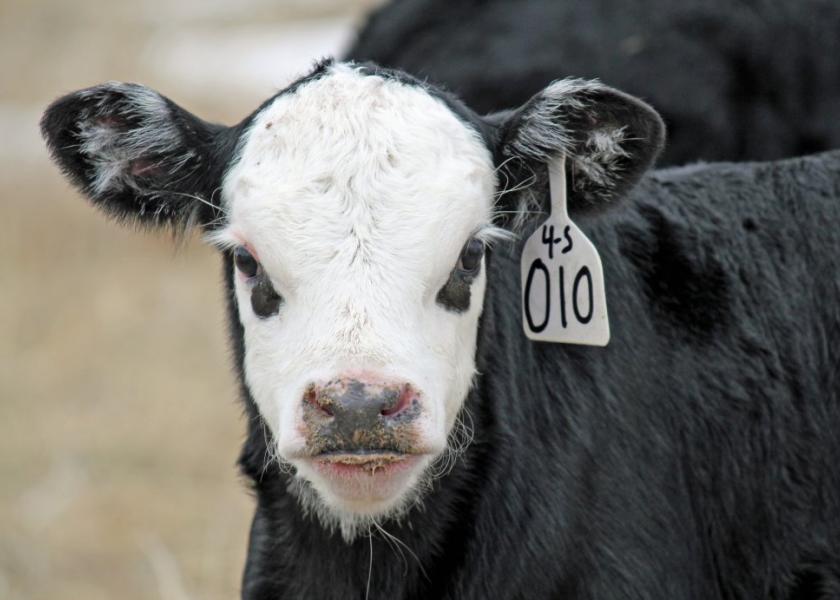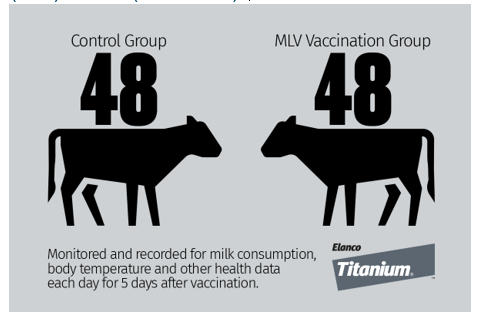Vaccination Should Do No Harm

This article was written by M. Wayne Ayers DVM, Elanco Animal Health.
Every marathon starts with running the first mile. The first mile is perhaps as or more important than the last. At Elanco we have a philosophy called Lifetime Immunity. This philosophy is like a marathon in that each vaccination, or mile, builds on the last.
If calves are to be successful in achieving lifetime immunity that transitions them to healthy heifers and ends with them becoming productive cows, building a strong immune system starts on day one.
Colostrum is key, and development of quality colostrum starts with adequate nutrition in the cow. Without adequate protein, energy and macro/microminerals, the cow cannot create the quality nor quantity of colostrum needed to start the calf off on a successful life’s journey. Timely vaccination of the cow can enhance the antibody levels for a variety of potential diseases.
Colostrum formation generally begins 6 to 8 weeks before the calf is born. Therefore, vaccination to enhance colostral antibodies should take place a minimum of 8 to 10 weeks before calving. This allows the cow’s immune system adequate time to develop the antibodies and white blood cells that are transported into the mammary gland during colostrogenesis.
These and other immune cytokines and antimicrobial peptides get transferred to the calf when it consumes adequate amounts of high-quality colostrum as soon as possible after birth. These components help build immunity right from the start.
When should we vaccinate?
With the immune system off to a strong start, the question becomes how to keep that strong start going. When is the right time to vaccinate calves?
Some vaccination protocols have producers vaccinate calves on day 1 or within the first week of life for a variety of potential pathogens. The question becomes, “Is it necessary to vaccinate at this age with the implementation of a good colostrum management program?” The goal is to stimulate an immune response in the calf before the benefits of colostrum wane to the point of risk of disease.
I am frequently asked by producers, “How young is too young to vaccinate my calves?” The answer is not straightforward as it depends on if one is asking about the immune response or the effects on the calf itself. Our first goal should be to “do no harm.”
Several researchers have looked at the immune response of young calves to vaccination, but very little data exists to understand the physical or physiological effects of vaccination in very young calves. To help understand the physical effects of vaccination in very young calves, a research study was developed to answer some of those questions.
In the study, two age groups (21-25 days old and 42-46 days old) with 48 Holstein calves in each group (a total of 96 calves) were assigned to one of two treatments (24 calves in each treatment).1 A control group received a saline injection, and the vaccine group was administered a 5-way modified live virus (MLV) vaccine (Titanium 5).

Results of the study show that vaccinating Holstein calves as young as 21 days of age with Titanium 5 did not have a negative impact on milk consumption, body temperature or other commonly used clinical signs of calf well-being.1 There was slight injection site swelling in older calves, but the swelling in 7 of 10 calves had resolved by day 5 after vaccination.
Since our goal is to lay the foundation of lifetime immunity with a strong and complete immune response without causing harm, a research-proven MLV vaccine such as Titanium 5 becomes an excellent choice. We know the use of MLV vaccines stimulates both humoral (B cells/antibodies) and the cell-mediated (T cells) immune response.
MLV Delivers a Safe and Broad Immune Response
Some producers use a parenteral inactivated or an MLV intranasal vaccine because of concern that calves may go off feed or be lethargic after administration of an injectable MLV vaccine. This research demonstrates that Titanium 5 can be safely used in calves as young as 21 days of age.1 This allows producers to safely set the foundation of lifetime immunity as calves transition from the protection established from good quality colostrum to their own robust, broad-based immune response. This approach builds a foundation for a lifetime of immunity.
For more information about the use of Titanium 5 in your vaccine protocol, consult with your herd health veterinarian, Elanco sales representative or technical consultant.
The label contains complete use information, including cautions and warnings.
Always read, understand and follow the label and use directions.
1 Elanco Animal Health. Data on file.
Titanium, Elanco and the diagonal bar logo are trademarks of Elanco or its affiliates.
© 2022 Elanco or its affiliates. PM-US-22-0783







